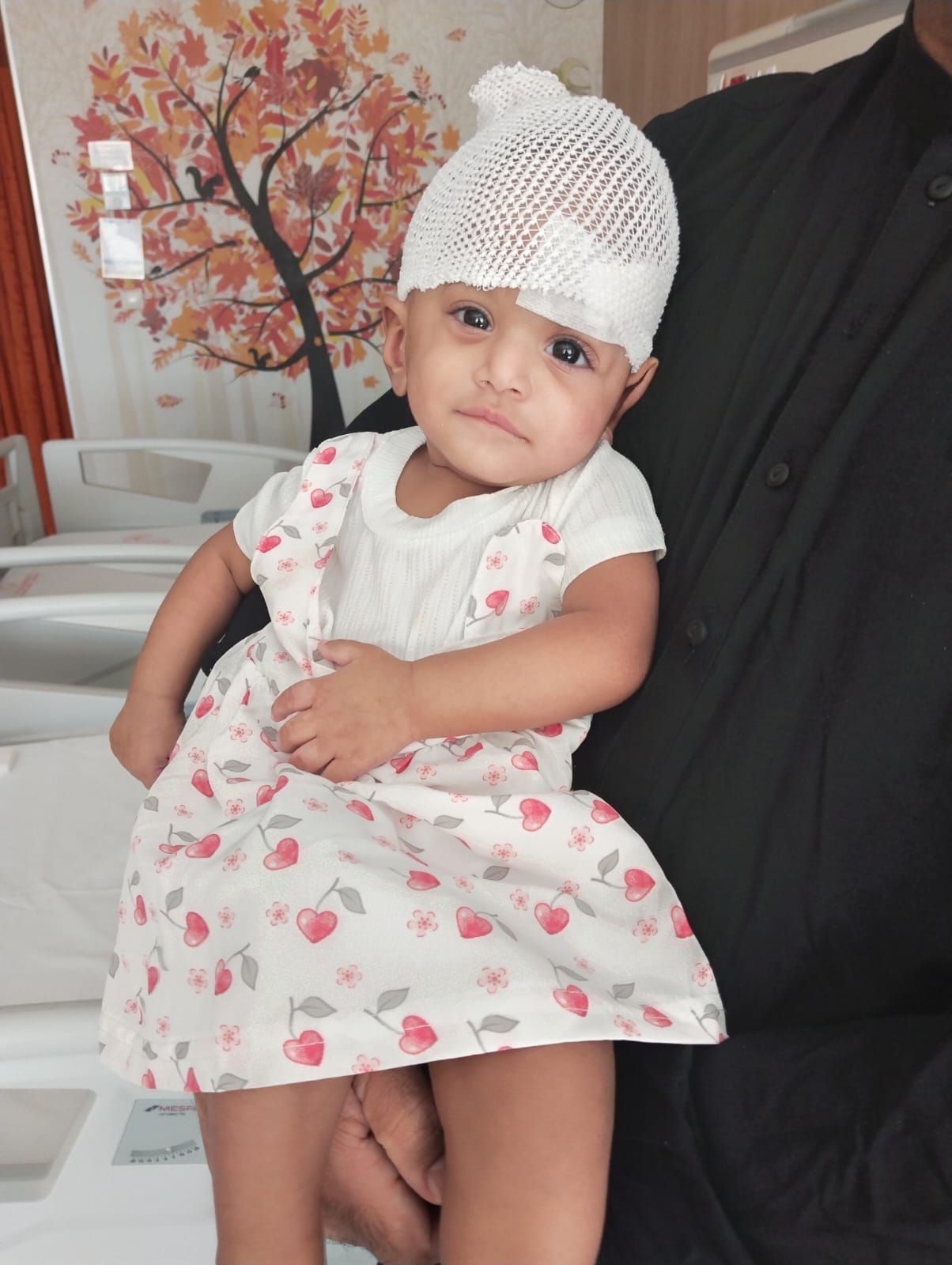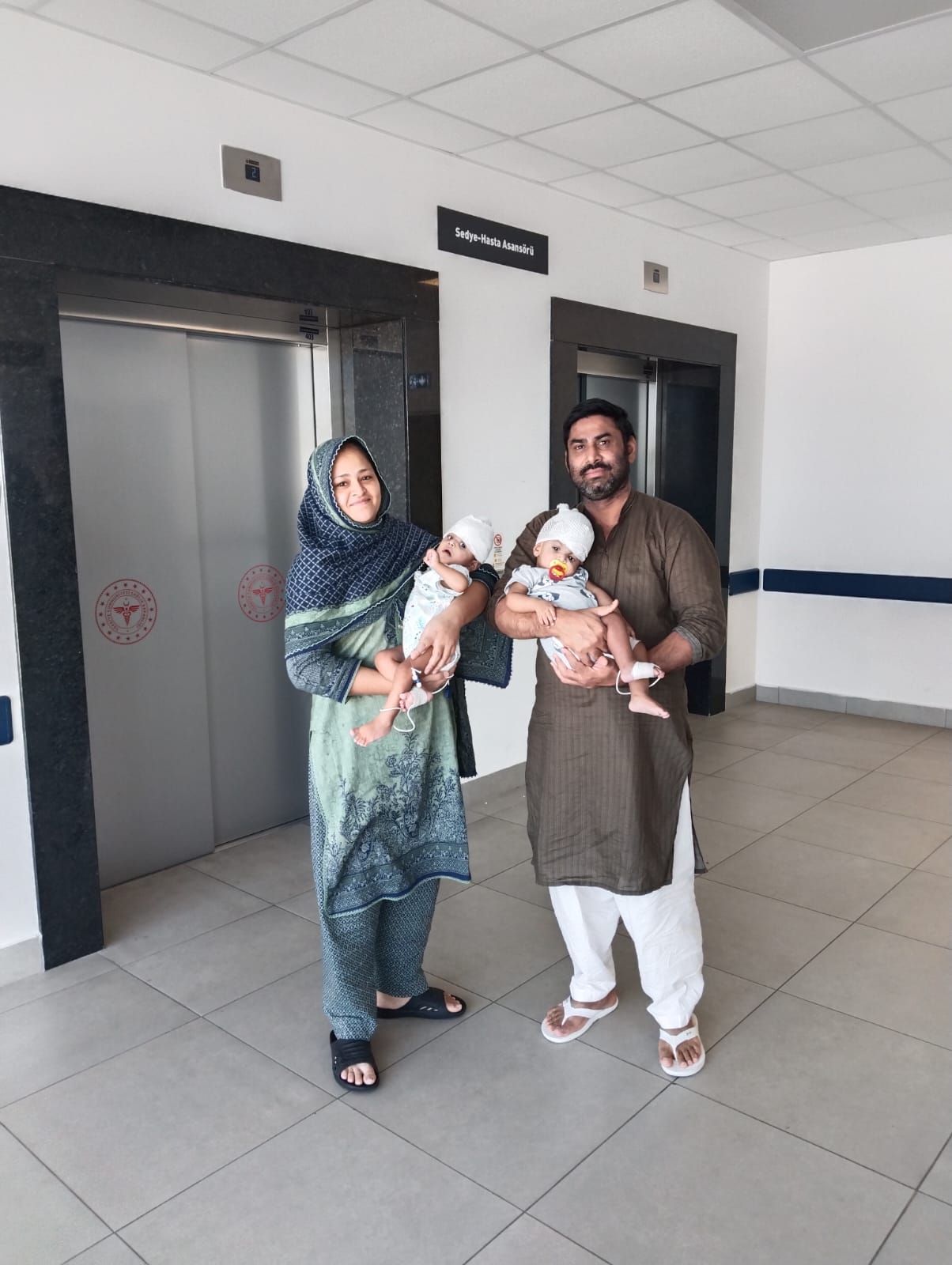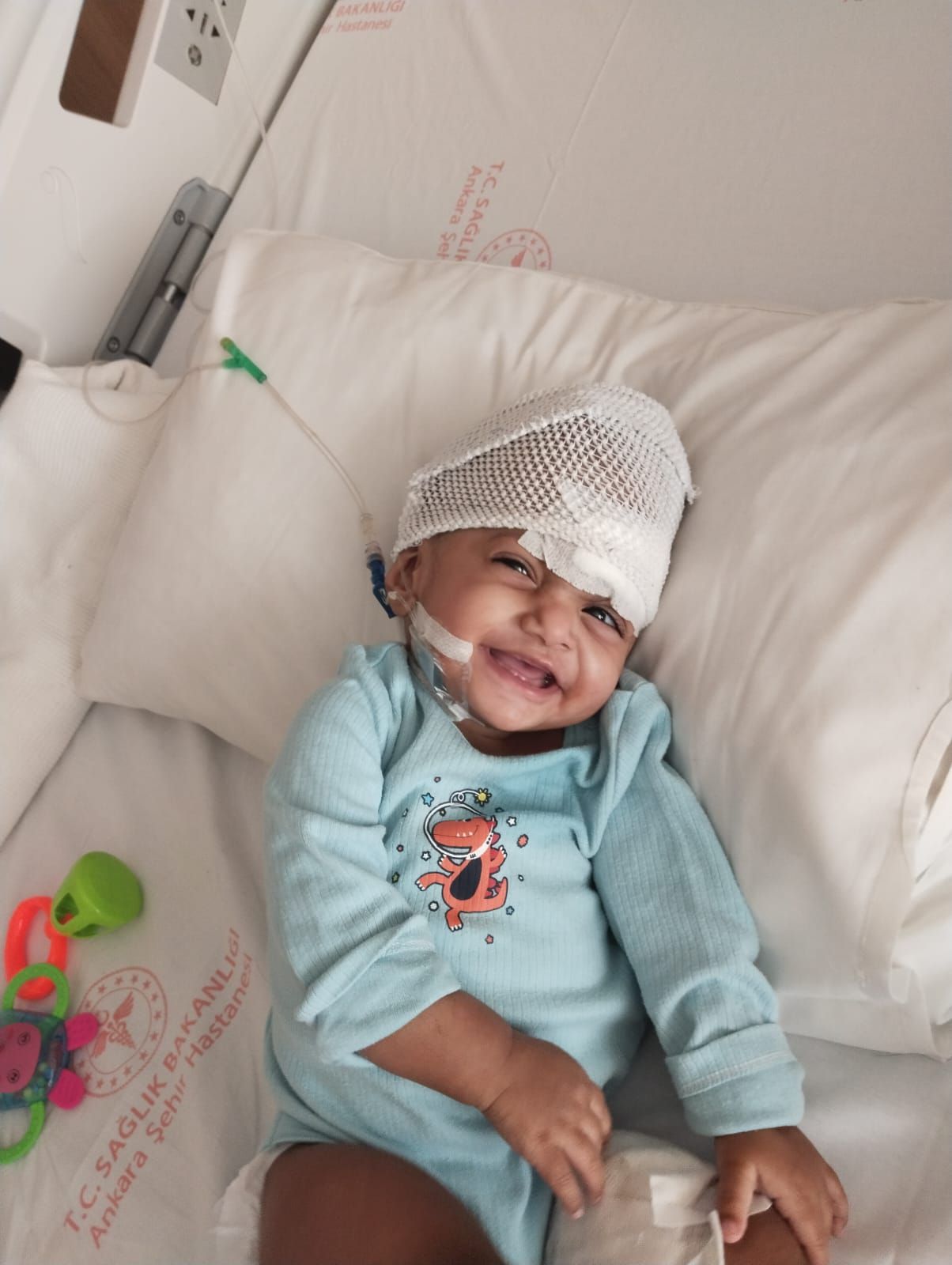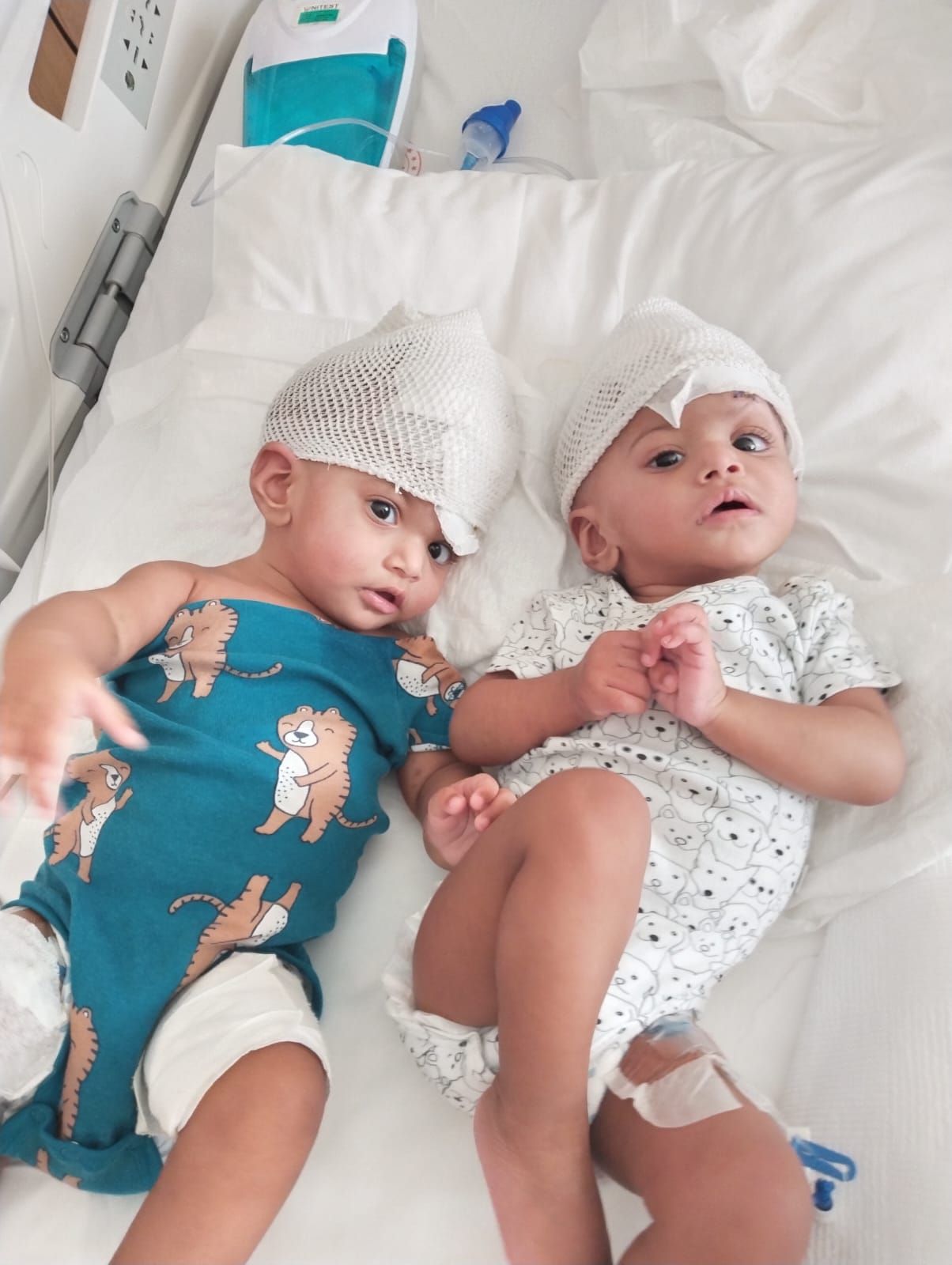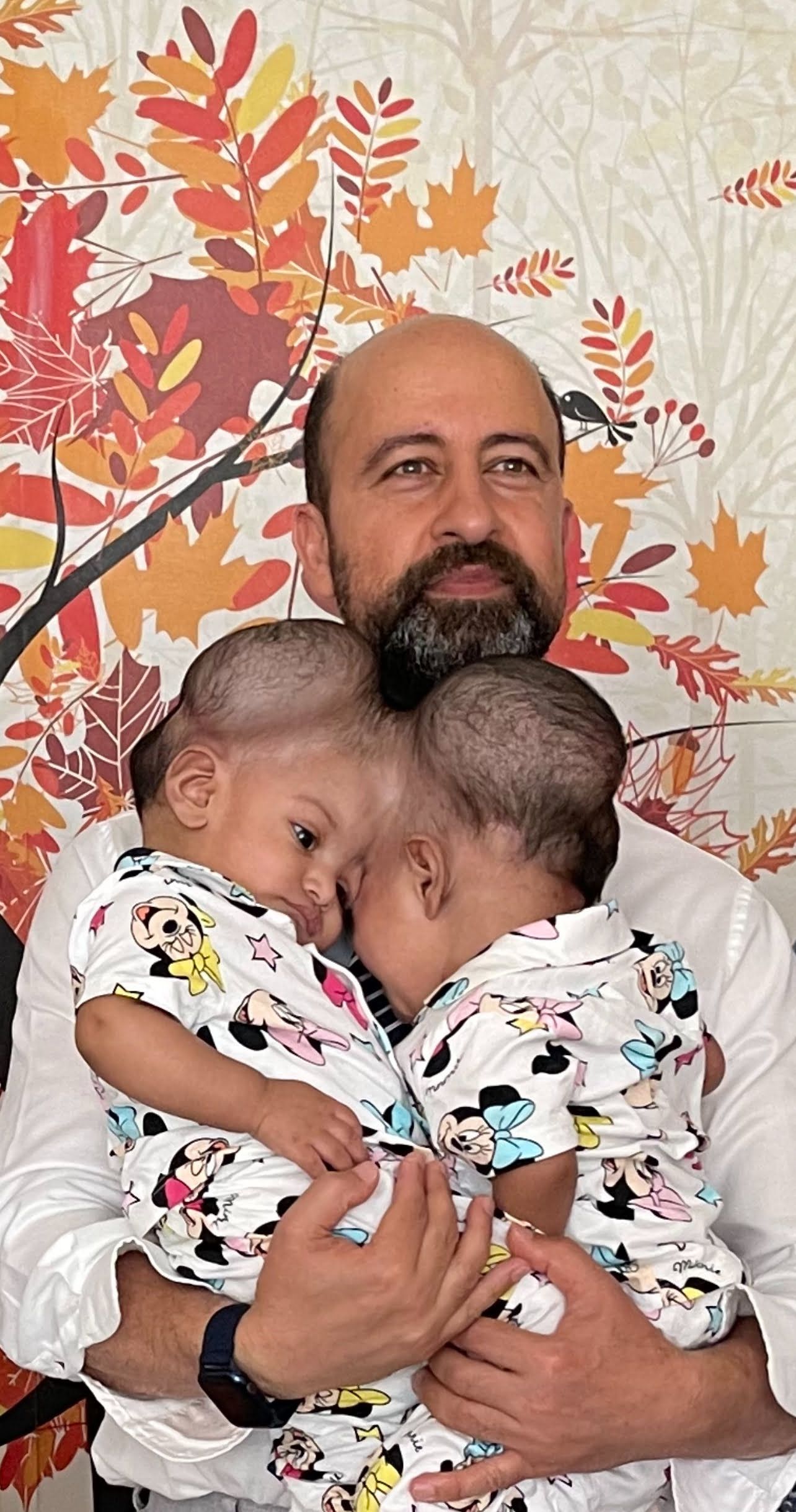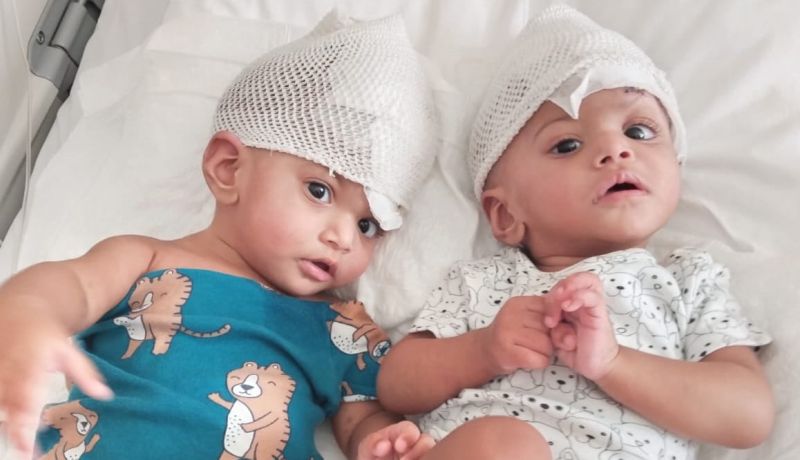Mirha and Minal
Minal and Mirha were born in Pakistan, conjoined at the head and sharing vital blood vessels. Shortly after birth, they were referred to the team at Gemini Untwined.
In May 2024 they went to Turkey and separation was completed in July 2024, after securing funding from the Ministry of Health in Türkiye, the twins were flown to Ankara Bilkent City Hospital. Following a detailed medical review, the team embarked on the challenging separation surgery, which was completed in two stages, with the final procedure lasting 14 hours.
This remarkable operation was not only a triumph for medical science but also a global collaboration, involving medical teams from seven different countries. The twin girls, both under one year old, have made a full recovery and are expected to fly home later this month (September 2024) to lead full and independent lives.
Professor Jeelani, who led Gemini Untwined’s eighth successful separation of craniopagus twins, reflected on the achievement: “It is an honour to be part of this team who have successfully completed Gemini Untwined’s eighth separation of craniopagus twins. To be able to give these girls and their family a new future where they can live independently and enjoy their childhood is a special privilege. This was truly a global effort, with twins from Pakistan being separated in Türkiye with the expertise and support of a UK-based team from seven different countries.”
Uniquely, this surgery leveraged the groundbreaking use of mixed reality (MR) technology to guide the surgical team.
In collaboration with the simXAR mixed reality platform, developed by neurosurgery resident and PhD student Ali Rezaei Haddad, the teams in Türkiye and the UK created a highly detailed 3D model of the twins’ anatomy. This immersive technology allowed surgeons to visualize and rehearse the complex procedure, improving precision and safety during the operation.
The success of this case was made possible through Gemini Untwined’s ongoing research and development of cutting-edge technologies, which continue to refine the techniques and skills required for these high-stakes surgeries.
Professor Jeelani commented: “The technology developed to undertake this work makes many of the more routine surgeries we perform safer, less invasive, and more effective, thus benefitting thousands of children within the UK and globally.”

